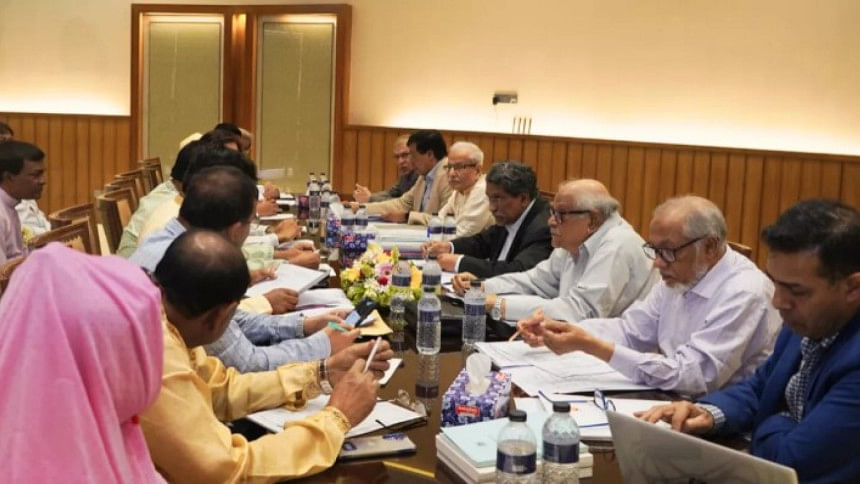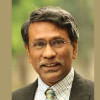July Charter runs into a snag

Jamaat-e-Islami, the National Citizen Party, and Islami Andolon Bangladesh have voiced reservations about the draft July Charter prepared by the National Consensus Commission, while the BNP has expressed partial agreement with the proposed reforms.
The BNP, however, has strongly objected to the proposal to enshrine the historical significance of the July uprising in the constitution, fearing it could pave the way for certain groups to promote the idea of a "Second Republic".
Jamaat termed the draft charter incomplete and dangerous, calling for it to be backed by an ordinance ratified by parliament or through a public referendum to ensure legal legitimacy.
The NCP said all consensus points must be codified into law before the election and insisted the upcoming polls be held under that legal framework.
While reviewing the draft, BNP leaders found it "hastily written" and flagged issues with wording.
Standing Committee member Salahuddin Ahmed told reporters yesterday that the party had "no fundamental objection" to the draft but wanted revisions to some phrases.
"We agree with the commitment sought in the draft to implement the pledges within two years," he added.
BNP leaders discussed the issue at a Standing Committee meeting at their Gulshan office on Monday night, chaired virtually by acting chairman Tarique Rahman.
A Standing Committee member said, "We support state recognition, but not constitutional status, for the July Charter and the July Declaration."
They argued that while the 2024 uprising marked the end of an authoritarian regime, it did not constitute a new independence. "The country already gained independence in 1971," said another member of the committee.
Several members warned that granting the 2024 events constitutional status could lead to "confusion and political controversy" and even calls to similarly recognise other uprisings like the 1990 anti-Ershad movement.
One BNP leader pointed out: "Even the 1971 Proclamation of Independence wasn't added to the constitution until 2011. And that move faced legal challenges."
As such, the BNP decided to continue discussions on the July Charter but not on the July Declaration. "We are sincere about democratic reforms and therefore remain open to dialogue on the July Charter," said a standing committee member.
Jamaat Nayeb-e-Ameer Syed Abdullah Mohammad Taher said, "In some parts, it [draft] is also dangerous. If this is merely a sample, it requires no comment. But if this is the final one, we cannot accept it."
He was talking to reporters during a break at yesterday's consensus talks at the Foreign Service Academy.
To ensure the charter's legitimacy, he proposed two legal pathways for implementation: an ordinance ratified by parliament or a national referendum.
Taher added that Jamaat would soon submit its own draft to the commission.
The NCP demanded that the agreed-upon reforms must be given legal recognition before the upcoming general election. "Consensus reached must be codified into law, and the polls must be held accordingly," said Joint Convener Javed Rasin.
Criticising the commission, he said, "The draft was published without adequate discussion. Imposing any text unilaterally is not acceptable to us. NCP is willing to submit its position in writing."
NCP Member Secretary Akhtar Hossen proposed issuing a Legal Framework Order to legitimise the charter and ensure its implementation regardless of which party forms future governments.
He suggested that if a constituent assembly is elected, it could incorporate the reforms into the constitution and enact laws preventing future contradictions.
He added that a formal party statement would soon be submitted to the commission and later presented to the media.
Islami Andolon Bangladesh criticised the draft for "being weak, lenient toward a fallen autocracy, and lacking enforceability".
Secretary General Yunus Ahmad said the document failed to name Sheikh Hasina, "the chief architect of the fallen fascism", despite her alleged role in the July brutality.
"The language fails to reflect the cruelty, horror, and misrule," he said, calling for more direct condemnation and legal binding.
Ganosamhati Andolon Executive Coordinator Abul Hasan Rubel said they feel some of the words and language used in the charter need further refinement. Additionally, there are some points they believe should be included.


 For all latest news, follow The Daily Star's Google News channel.
For all latest news, follow The Daily Star's Google News channel. 





Comments